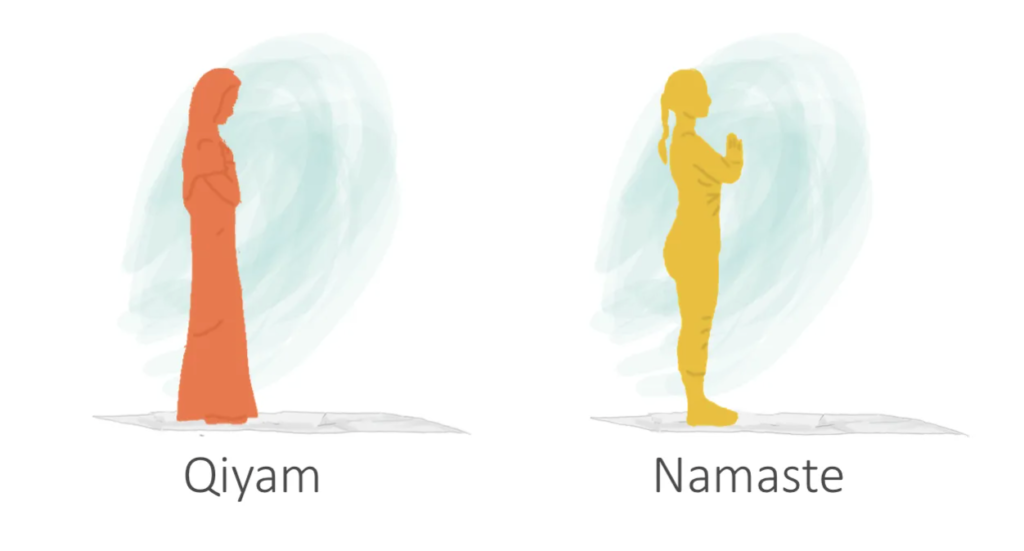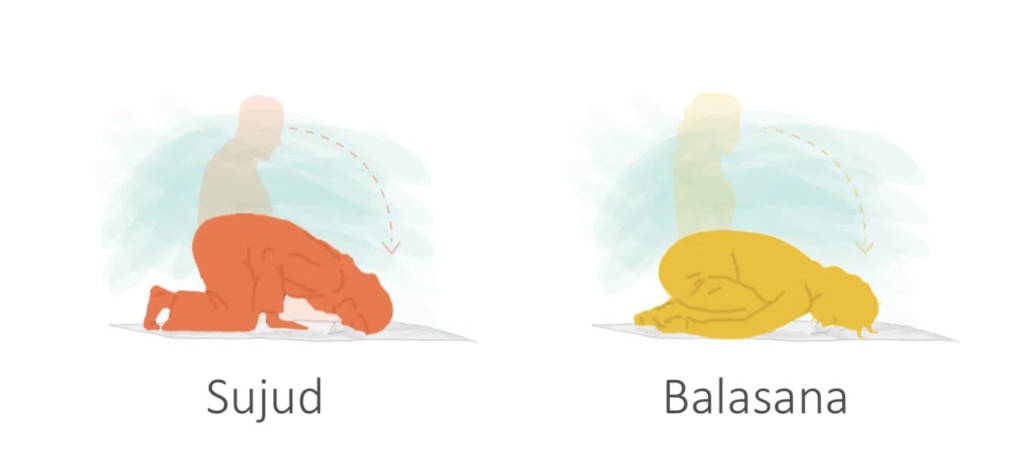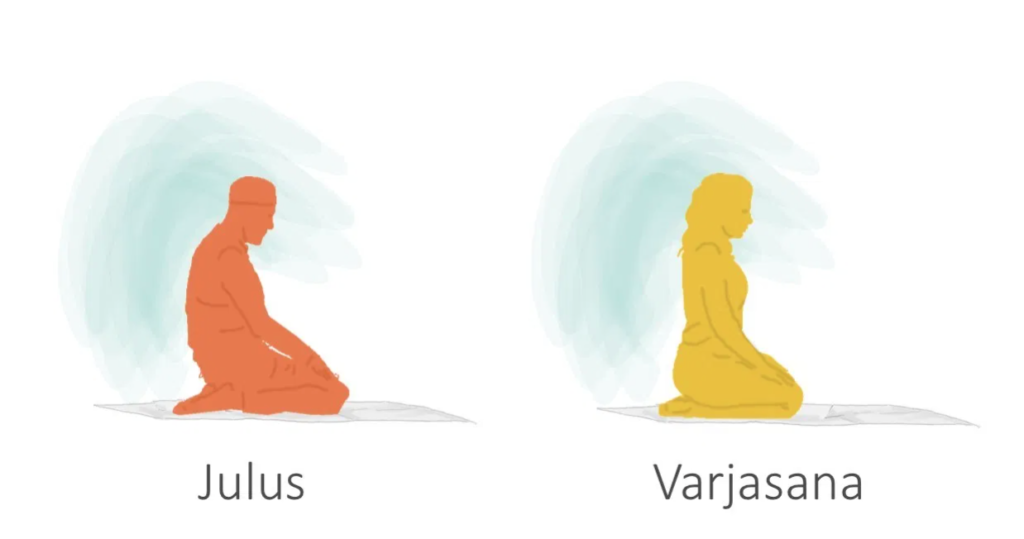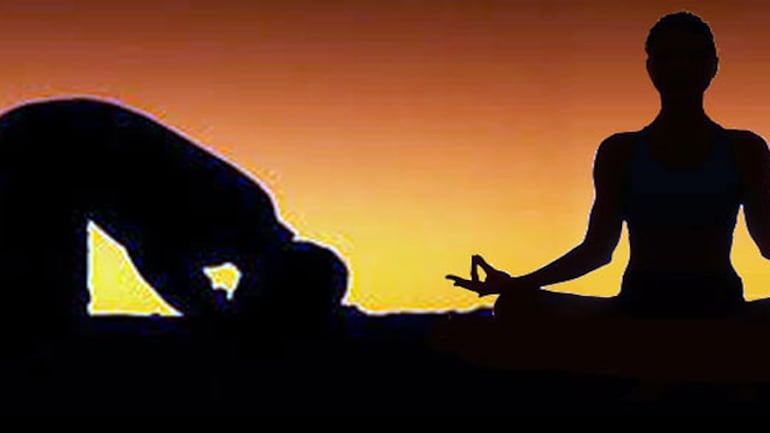Muslims, followers of Islam, have been practicing a way of offering their prayers' namaz or salaat', five times a day, every day. The "arkaans" or the postures of namaz are very similar to those in beginner-level yoga. Well, I've realized recently that I have been doing yoga in my namaz over the years, unknowingly.
Namaz should be performed very consciously and deliberately, just like yoga requires to be completed. Before I move further, let me tell you about the literal meaning of the two words. Yoga is derived from the Sanskrit word 'yuja', which means union. Similarly, namaz is also called 'salaat', derived from Arabic words' silaa/wisaal', also meaning meeting/union. The connotation, of course, could be the union of 'aatma' and 'paramaatma' or 'of the mortal with the Almighty'.
The common factor between namaz and yoga is the minimal energy expenditure, compared to the immense benefits of physical health, mental ataraxy, and maintaining the proper posture.
Namaz comprises several rak'ats, of which 17 are 'farz' (obligatory). In each rak'at there are seven postures. If a Namazi offers just these 17 compulsory rak'ats in all, then he is performing 119 postures in a day in a total of just 50 minutes. I'll tell you about the basic postures or arkaans in the namaz and their benefits.
Qiyam & Namaste

The first posture, while offering namaz, is qiyam or namaste in yoga. During qiyam and namaste, there is an even distribution to both feet.
The advantage of this posture is that the body and mind feel relaxed as the body's weight is evenly distributed on two legs and the backbone is straight. With eyes fixed on the spot of 'sajdah', it improves the concentration of one's mind.
The body is charged with positive energy. This position strengthens and straightens the back and improves the posture also while reciting. At the same time, verses of the Quran, the sound vibrations of the long vowels ā, ī, and ū stimulate the heart, thyroid, pineal gland, pituitary, adrenal glands, and lungs, purifying and uplifting them all.
Ruk’u & Ardha Uttanasana

The second posture requires the Namazi to bow, putting the palms on the knees with all the fingers apart and legs straight. The body is bent at a right angle from the waist, and blood is pumped towards the upper half of the body.
Ruk'u & Ardha Uttanasana fully stretch the muscles of the lower back, front torso, thighs, and calves. This position tones muscles of the stomach, abdomen, and kidneys. Moreover, it even provides an effective relief in constipation.
Sujud & Balasana

Sujud is the most important position in namaz. The Namazi bends and kneels down; his forehead touches the ground so that a total of seven parts of the body touch the ground. This position has been regarded as the absolute submission to the Lord.
This position stimulates the brain's frontal cortex. It leaves the heart in a higher position than the brain, which increases the blood flow into the upper regions of the body, especially the head and lungs.
This position aids in cleansing the mental toxins. It also maintains the fetus's proper position in pregnant women, reduces high blood pressure, increases the elasticity of joints, and alleviates stress, anxiety, dizziness, and fatigue.
Julus & Vajrasana

This posture alters blood and nervous impulses in the pelvic region and strengthens the pelvic muscles. It helps prevent a hernia and also relieves one from piles.
This position reduces the blood flow to the genitals and massages the nerve which feed them. Thus, it helps in treating dilated testicles and hydrosol in men. It also assists women in labor and helps to alleviate menstrual disorders.
Julus and Vajrasana aid in detoxifying the liver and stimulates the peristaltic action of the large intestine. This position assists digestion by forcing the contents of the stomach downward. It cures varicose veins and joint pains, increases flexibility, and strengthens the pelvic muscles.
On the last note…
Many people describe meditation as a source of enlightenment and peace of mind. Namaz serves this exact purpose. Guidance and peace are essential values in Islam such that one is required to offer prayers five times a day.
These are just a few benefits of namaz. The more you study it and perform it religiously, you will attain peace with your mind and soul.







